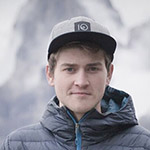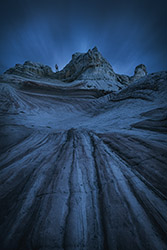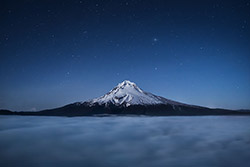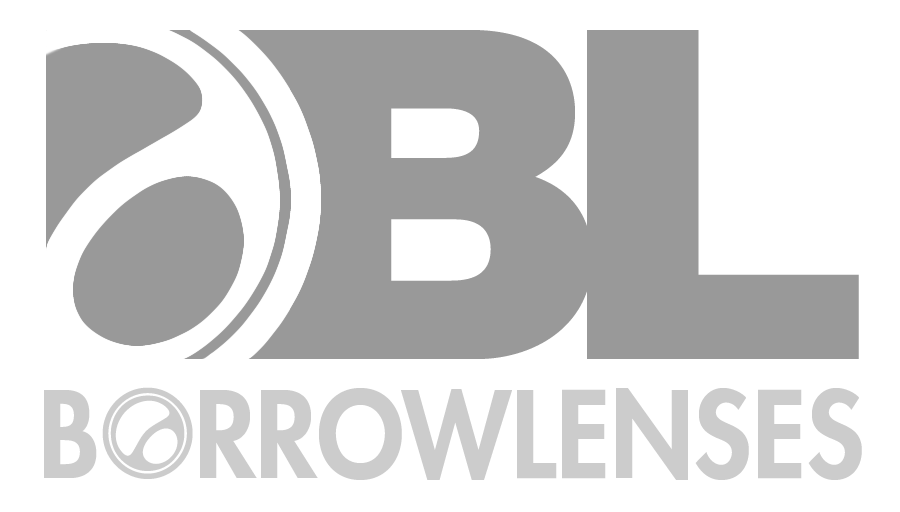
|
|
|||||
|
Featured Photographer, November 2016: Andrew Studer
We are happy to have Andrew Studer as our featured guest photographer this month. We appreciate that he gave us some of his time and generously shared his beautiful photography with us! Please visit his links to see more of his work, and to let him know you enjoyed this interview. :: Where did the passion for outdoor photography come from? I think my passion for landscape photography began as a natural continuation for my love of art and the outdoors. Growing up in Oregon, I was quite lucky to have so many beautifully diverse places so close to me. As a child, I'd take trips with my family to see these places and I think experiencing these places in person struck a desire to capture and share the beauty of these places.
:: How has your family felt with your choice of careers and paths? Thankfully, I grew up with very supportive parents. While the classic "get a degree" was always highly encouraged, my family was overall extremely supportive in my decision to leave school and pursue photography full time as a career. That being said, it did take a fair amount of time and advice/insight from other photographers to fully convince them that it was a good choice but I think that once they realized the opportunities I was getting/had to decline because I was in school, they realized it was a good choice to leave.
:: You've been doing this for a bit now, but you're still very young…how did you decide to make the jump to do it full time? Was there any classes or start while you were in high school? As with a lot of other people interested in photography, the idea of doing it full time is quite the fantasy. To be honest, while growing up I had the mindset that being an artist as a career wasn't sustainable/ possible. Back when I really got into photography my freshman year of college, my mindset was changed. I saw on social media from other photographers I looked up to how exciting and possible a career in photography could be. I realized that it was something I was passionate enough to attempt so one of the things I did to pursue that was apply for internship on my own time. I ended up working at a place called Buck Studios where I helped out with video production and learned a lot of key business skills.
:: I think there's a few different generations when it comes to photography, and I hope you don't mind I put you in the new generation, which I classify as photographers with a high skill set and the ability to maximize the social media market. How has social media played a part in how your photography career has evolved? I definitely have a love/hate relationship with social media. While it's definitely played a huge role in my career so far, I hate spending so much time on it but I do know its extremely important in showing your work and getting you jobs. For a lot of people out there, the idea that being a photographer with a lot of followers is the key to success. While there are definitely certain types of jobs that will come because of a following, I've always done my best to focus on consistently posting quality content and not cultivating numbers. Because of that, I've established myself as a photographer to a fair amount of people and have been fortunate enough to have enough people see that and want me to do work for them. To be honest though, I rarely get paid to shoot a lot of the photos I post to my social media accounts. I just do it because the photos I post are what I'm most passionate about creating.
:: Do you ever get any resentment from some of the old-timers for how fast you've climbed the photography ladder? I wouldn't say I get any resentment from other older photographers about where I'm at career wise. Many of the photographers online that I know and interact with are all for the most part pretty encouraging and supportive when it comes to where I'm at. I still look up to and admire so many other photographers out there so its great to see so many of them having a positive outlook on "the new generation of photographers."
:: You do a lot of work with video and time lapse as well. How does this process differ from the still photography work? To put it simply, I think that for me the only thing that really differs between photography and video is the amount of stress. While I love shooting time-lapse videos and video in general, I typically find that the work that goes into photography is quite a bit less stressful but it's good to keep in mind that in today's world it usually doesn't pay as well as video so I find myself taking on a fair amount of video projects to keep pushing further.
:: You seem to be on the road quite often. What kind of toll does it take on you? Being on the road is a huge part of my life now. It's extremely exciting and because of the amount of traveling I'm able to do, I couldn't be happier. That being said, it does get exhausting. As an outdoor photographer, sunrise, sunset and night time are key points of the day to photograph. Add that with driving to a new location during the day for two weeks straight, it can be exhausting. While hotels are usually covered when shooting for a client, what people don't know is that I usually have to live out of the car to really make the most of what I'm working on something I'm proud to hand off. I always appreciate the times I'm out experiencing a new and exciting place but also the times I'm at home catching up on editing, hanging out with friends/ family and even just laying in bed watching Netflix.
:: What's the scariest thing that has happened to you on a shoot? I think one of the more "scary" things that's happened to me was when I was on a shoot for the Visitor's Bureau on Kauai, Hawaii. One night after wrapping up some star time-lapses, I got back to the trail head and found that my rental car had died. While this usually wouldn't be a huge deal, I had a helicopter flight scheduled the next day and couldn't miss it. Unable to unlock the back hatch, I put my time-lapse rail underneath the car because I was worried it'd scratch the interior. With no one else around, no cell reception, my assistant and I decided to walk 4 or so miles back to the rental cabin we were staying at and hope to find someone by morning to help us jumpstart the car. By the afternoon just in time for us to make it to the helipad, we were able to find someone kind enough with jumper cables to give us a ride back up to the trail head to get our car but by the time I got there, I realized the slider had been stolen. It was disappointing to not use it for the rest of the shoot, but it taught me that rails aren't completely necessary in producing quality time-lapse content and to be more cautious with my gear.
:: When you plan for a commercial shoot, what does that process look like creatively for you? How do you and a client work together? Are there any lines or situations you try to steer away from when it comes to this kind of work? When I plan a commercial shoot with a client, I try to always bring my own style and creative control to the shoot. While it's important to be adaptable to what a client is going for, I think that it's good to consider why that client reached out to you in the first place and more often than not, it's what you as an artist does uniquely. For me, the jobs that allow me to bring my own personal creativity to the shoot are always my favorite and often a deciding factor with whether or not I do a project. One of my favorite jobs was shooting social media content for GMC. I was given a truck and told to go out with my own style and come back with a set of images.
:: One of the things you are well known for is your lone figure in nature work. What inspired this kind of shooting, and how difficult is it to set up the shots? One of my favorite things to photograph is including small person in my landscape photos. I like how the human element in a landscape not only how brings a sense of scale to the image but also a new connection to a viewer. To do these photos I typically work with a friend on their position/ pose or use a time-lapse remote and tripod for me to climb out to a point. When I do these, I always try to consider not only the safety risks involved in what I'm doing but the potential environmental damages I may inflict. While I may have a vision for a cool photo, there are many times I'd love to take a photo with a person out on a ledge or something but pull the plug.
:: Landscape and outdoor photography, it seems is always getting into some kind of controversy with something. Whether it's processing techniques, disclosing locations, original compositions, or whatever…how do you avoid the drama and focus on the work? Is there any kind of the issues that touch a nerve with you that you end up getting involved with? As with any group, drama does unfurl on social media and unfortunately happens a fair amount in the photography community. I typically try to avoid it all but as a landscape photographer posting on social media, I just can't be silent when it comes to the environmental destruction some places have seen ever since 2013 when outdoor photography on Instagram became so popular. While I don't think it's right to prevent people from going outside, I've seen situations where people disrespect the outdoors. Rather than calling "offenders" out though, I think it's best to focus on educating people on ways to respect the outdoors.
:: What's your vision for your career in the next 5-10 years? Do you ever worry that because you were successful so young that you might get bored? In five years from now, I hope to be exactly where I am now but doing high end outdoor commercial jobs more consistently. I don't think I'll ever grow bored of the freelance life. It contains endless possibilities, challenges me and keeps constantly keeps me excited for what's next. I'm very excited for whatever comes my way and I hope that I still prioritize creating for myself and that I continue to love what I'm doing.
:: What was the best lesson or piece of advice you received or discovered while you were learning the craft? The most meaningful lessons I've learned while 'learning the craft' has been from my good friend and creative partner, Toby Harriman. While talking about a project we were working on for a potential client, he said "content is king." That really stuck with me and helped shape how I go about my craft. He reinforced the fact that what you create is way more important than stats, equipment and age. If you focus on producing quality content, quality jobs will come and you'll succeed. Another piece of advice I got was from my friend, Michael Shainblum. He really reinforced how important it is to not worry about pursuing commercial work and that if you stay true to the creative you are, jobs will come.
:: What advice would you pass on to young photographers? Similar to the advice I got from Toby, I'd recommend not worrying about what gear you have or may not have, your experience, and what you're limited by. Everyone starts somewhere so get after it with absolutely whatever you have, OBSESS over it and create as much as you can. Don't worry about what your following is like on social media, "content is king" and what you produce will always be the most telling and important. While this next bit certainly isn't the most conventional advice, I'd also like to mention that sometimes it might be best not to pursue photography full time. It's important to know and consider how weighing a career in photography actually is. It's really not for everyone as it can be extremely demanding, tiring and stressful and keep you from friends/family for a long time. For some people, getting a traditional job is the best route and there isn't a single thing wrong with that. Many of the photographers I still admire are extremely talented individuals who work part time jobs or even full time and do photography on the side.
:: Where does the creative process start for you? What happens internally that makes you feel you need to start creating? Is it something you see ahead of time or begin with pre-visualization? Is it a feeling or spontaneous act you have while being out? I think that pre-visualization is an important part of the creative process. From before I shoot the RAW to after I'm done processing, I try to slow down and have a close to clear idea of the image I want to create before I even set up my camera and tripod. |
"Everyone starts somewhere, so get after it with absolutely whatever you have, OBSESS over it and create as much as you can."
Photographer Spotlight Interviews
|
|
 |
Other Cool Stuff→ Past Workshop Photos → 72dpi.com → How-To Articles → Photographer of the Month |
 |
Contact Us→ Contact Us → About Us → Site Map |
© 2009-2024 Aperture Academy, Inc.









